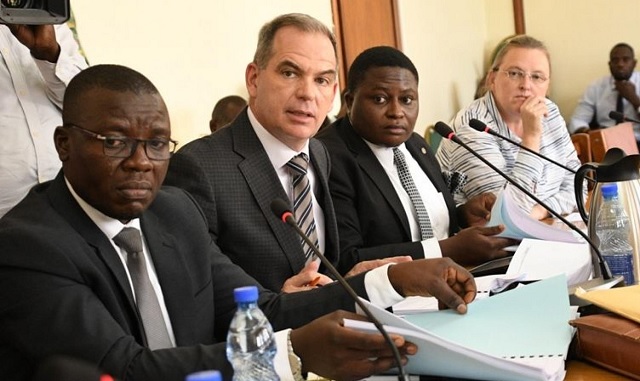By Frank Kamuntu
In an unprecedented move, high-ranking officials from the Ministry of Finance have resorted to social media to defend the government’s decision to redirect Shs300 billion earmarked for ambulance procurement and referral hospitals to rescue Roko Construction Company from financial collapse.
The controversy unfolded after President Museveni declined to sign the 2024 Appropriation Bill, prompting Minister of State for Finance Henry Musasizi to address Parliament. He outlined the reallocations necessitated by the President’s directive, emphasizing the urgent need to reinstate Shs300 billion to Treasury Operations to fulfill government obligations, particularly towards settling Roko’s bills of exchange and covering bank charges at the Bank of Uganda.
The revelation sparked immediate criticism from MPs like Ssemujju Nganda (Kira Municipality), who highlighted the misallocation of funds originally intended for public health emergencies now diverted to a private entity. Despite public outcry and opposition within Parliament, the reinstatement of funds was approved.
Attempting to mitigate public anger, Minister Musasizi and Treasury Secretary Ramathan Ggoobi clarified that not all the UGX300 billion would be allocated to Roko. They asserted that a significant portion was allocated to Bank of Uganda to manage government accounts, which is essential for sustaining the national budget.
Charles Ayume (Koboko Municipality) expressed disbelief at the decision, questioning the wisdom of diverting funds meant for critical healthcare infrastructure towards a private company via social media: “The decision to cut funds for 80 ambulances for MOH in favor of Roko is mind-boggling.”
Minister Musasizi reiterated the necessity of honoring past parliamentary approvals, detailing the breakdown of the UGX300 billion allocation and emphasizing the broader financial implications for government operations.
Despite these explanations, public sentiment remained vehemently critical, describing the decision as unethical and insensitive. Responding to public outrage, Ggoobi reiterated the rationale behind Parliament’s decision, defending the bailout of Roko as crucial for preserving jobs and bolstering Uganda’s construction industry amid economic challenges.
The controversy underscores ongoing debates over fiscal priorities and government accountability, particularly regarding the allocation of public funds to private entities like Roko Construction Company, which previously received UGX202 billion in a contentious bailout approved by Parliament in 2022 during the Covid-19 pandemic.

